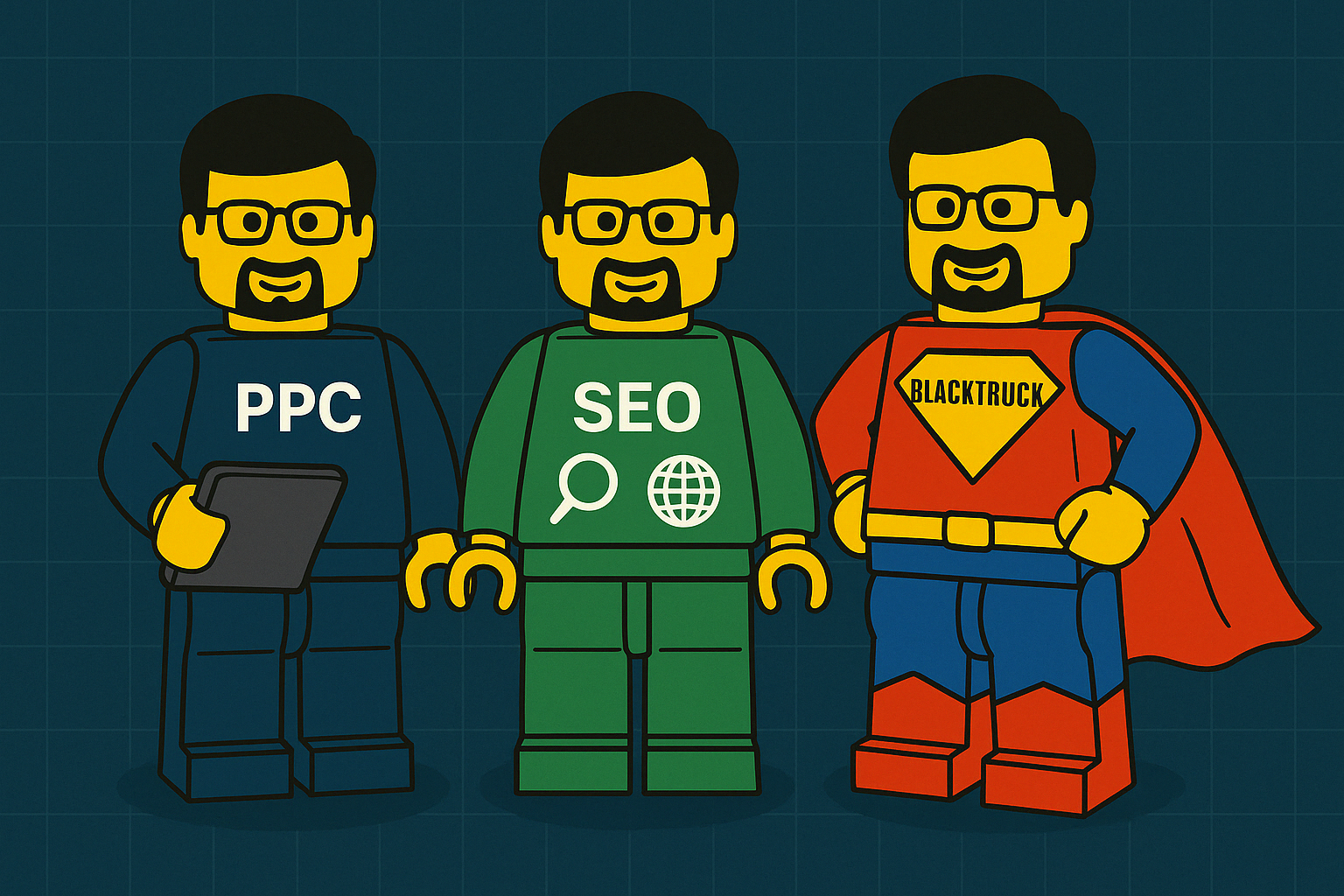In the world of digital marketing, careers in SEO (Search Engine Optimization) and PPC (Pay-Per-Click) advertising often converge and overlap. While the skill sets may differ, the ultimate goal remains the same: getting brands in front of the right audience at the right time.
Whether you’re new to the field, looking to switch disciplines, or want to integrate SEO and PPC, understanding how these roles complement each other can set you apart as a versatile marketing professional.
How SEO and PPC Careers Can Converge and Work Together
When I first entered the search marketing industry, I started with PPC. The agency that hired me saw my potential for strategic thinking and innovative ideas, but my long-form writing skills were admittedly lacking. Over time, I grew as a writer, but that experience taught me an important lesson: while PPC is primarily performance-based marketing aimed at attracting the right audiences and provoking immediate action, SEO is no different in its ultimate goal. Both aim to make brands visible to key audiences when and where it matters most.
PPC and SEO professionals share several critical skills, including identifying their target audience and understanding where they spend their time online. This insight helps shape strategies that ladder up to success, whether through paid or organic efforts. Considering where people gather online is just as important as understanding what they might be searching for. This approach guides both ad targeting and organic content strategies.
The Value of Cross-Training in SEO and PPC
Cross-training in both SEO and PPC is immensely valuable, regardless of whether you’re working in-house or agency-side. For example, a PPC professional with foundational SEO knowledge can better understand landing page optimization and user experience factors that impact both ad performance and organic search relevancy. This holistic approach can reduce friction in the conversion process and enhance CRO (Conversion Rate Optimization) outcomes.
Combining SEO and PPC efforts can also yield exceptional results. Imagine a campaign where the goal isn’t just immediate action but increased awareness. In such cases, collaborating with SEO teams allows PPC professionals to identify gaps in organic search efficacy and enhance the campaign’s overall effectiveness. A unified goal and integrated approach help break down silos between teams and promote better collaboration.
SEO Skills vs. PPC Skills: Finding Your Strengths
While there is significant overlap, each discipline also requires unique technical skills. For PPC professionals, in-depth knowledge of ad platforms like Google Ads and Meta’s Business Manager is essential. The growth in these skills is often reactive, requiring marketers to quickly adapt to changes in platform functionality or shifts in algorithms. Understanding which platforms work best for different interactions is equally important.
For SEO professionals, technical skills often revolve around understanding website architecture, link-building strategies, and content optimization. Tools like Moz, SEMrush, Ahrefs, and even SpyFu can serve both fields, but they cater to PPC and SEO needs differently. While keyword planners and competitive intelligence tools are crucial in PPC, SEO requires a deeper dive into content strategy and organic ranking factors.
Why Some People Gravitate More Towards Ads
Many professionals find themselves in PPC by chance rather than choice. Perhaps they were assigned ad management duties at an agency or brand and gradually became the go-to person for campaigns. Others are drawn to the more immediate results that PPC often provides compared to the long-term, marathon nature of SEO.
PPC professionals often thrive on data-driven decision-making and real-time performance analysis, while SEO practitioners may prefer the challenge of crafting sustainable, long-lasting visibility within the SERPs. Curiosity, adaptability, and a willingness to experiment are beneficial traits for both roles.
STANDOUT AS AN SEO HIRE
Demonstrate Real-World Experience: Whether through case studies or personal projects, showcase your ability to have a critical thought process and execute successful strategies.
Highlight Technical Skills: Proficiency in tools like Google Search Console, Screaming Frog, and various content management systems (CMS) is valuable.
Provide Practical Examples: Do. Not. Inflate Numbers! Focus on tangible outcomes and practical solutions to the challenges you’ve experienced.
Emphasize Problem Solving: Highlight instances where you made impactful changes based on data-driven insights, ultimately answering the critical “why” questions.
STANDOUT AS A PPC HIRE
Adopt a Data-Driven Mindset: Demonstrate your ability to interpret performance metrics and make strategic adjustments while keeping the brand objectives in focus.
Showcase Creativity: Have an updated portfolio that highlights your ad copywriting and campaign strategies.
Budget Management Expertise: Understand how to be a steward of budgets while maximizing return on investment.
Proactive Problem Solving: Be prepared to discuss how you identified campaign issues and took decisive action to improve performance.
P.S. Which Would I Start With If I Started My Career Over?
Reflecting back on the trajectory of my career, I don’t think I would change much. I got my professional start in PPC around 2005, but even before that, I was unknowingly dabbling in SEO. I just didn’t realize it was a skillset that could build an entire career around.
If anything, I wish I had known sooner that SEO was a defined career path. At the time, it wasn’t clear that the things I enjoyed. Optimizing websites, thinking about user experience, and getting found online were all part of a broader industry with a name and a future. Had I known that earlier, I might have leaned into it more deliberately.
That said, starting in PPC gave me a strong foundation in performance marketing, data analysis, and fast-paced testing environments. Those skills absolutely translated into how I approached SEO later on. So, while I wouldn’t say one is better than the other as a starting point, I do think there’s huge value in beginning with the area that allows you to build confidence quickly. For me, PPC did that.
Ultimately, both channels feed into the same ecosystem, and each can inform and elevate the other. Wherever you start, staying curious and open to learning across both areas will set you up for long-term success.
Final Verdict: Is SEO better than PPC?
The best digital marketers understand the value of both SEO and PPC. Rather than seeing them as competing disciplines, recognize how they can complement one another. Embracing cross-training and developing skills in both areas will make you a versatile and invaluable asset in today’s fast-paced marketing landscape. In other words, per an SEO industry favorite statement, “It Depends!”


